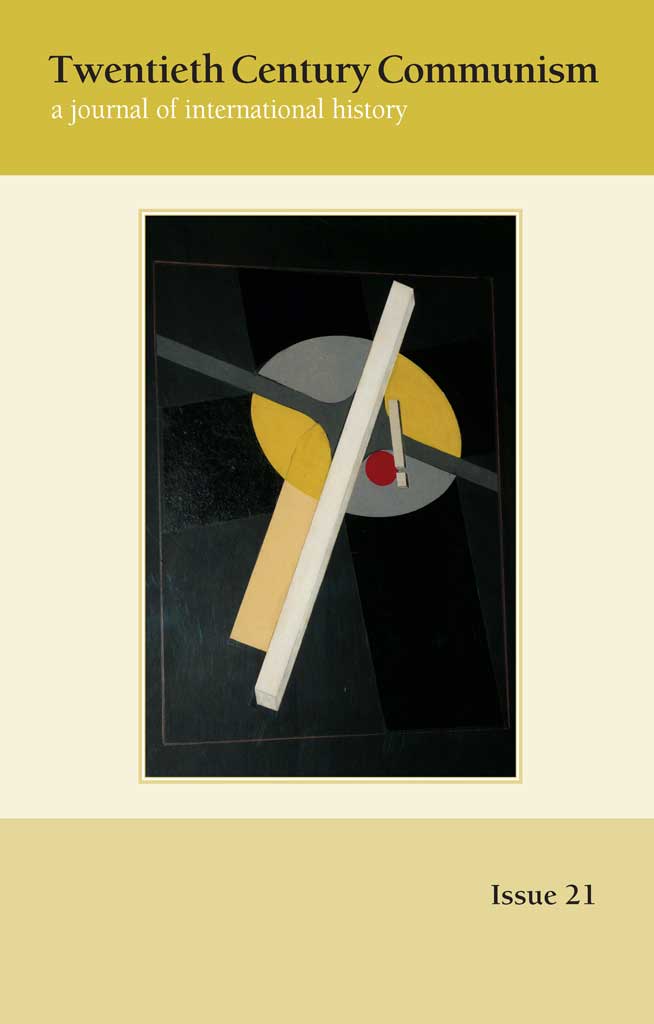
Thomas J. Kiernan and Irish Diplomatic Responses to Cold War Anti-Communism in Australia, 1946-1951
Twentieth Century Communism - Print ISSN 1758-6437 - Online ISSN 2978-1329
Volume 2021 Number 21
Thomas J. Kiernan and Irish Diplomatic Responses to Cold War Anti-Communism in Australia, 1946-1951
Gerard Madden pages 29‑54
Abstract
Despite being a peripheral actor in the Cold War, Ireland in the immediate post-war period was attentive to Cold War developments internationally, and the influence of the Catholic Church over state and society predominantly shaped the state’s response to the conflict. Irish diplomats internationally sent home reports on communist activity in the countries in which they served. This article will discuss Thomas J. Kiernan, Ireland’s Minister Plenipotentiary in Australia between 1946 and 1955, and his responses, views and perceptions of Australian anti-communism from his 1946 appointment to the 1951 plebiscite on banning the Communist Party of Australia, which ultimately failed. Through analysis of his reports in the National Archives of Ireland – including accounts of his interactions with politicians and clergy, the Australian press, parliamentary debates, and other sources - it argues that his views were moulded by the dominant Irish conception of the Cold War, which was fundamentally shaped by Catholicism, and his overreliance on Catholic and print sources led him to sometimes exaggerate the communist threat. Nonetheless, his reports home to Dublin served to reinforce the Irish state’s perception that communism was a worldwide malaise which the Catholic Church and Catholics internationally were at the forefront of combatting.
To cite this article
Gerard Madden (2021) Thomas J. Kiernan and Irish Diplomatic Responses to Cold War Anti-Communism in Australia, 1946-1951, Twentieth Century Communism, 2021(21), 29-54
